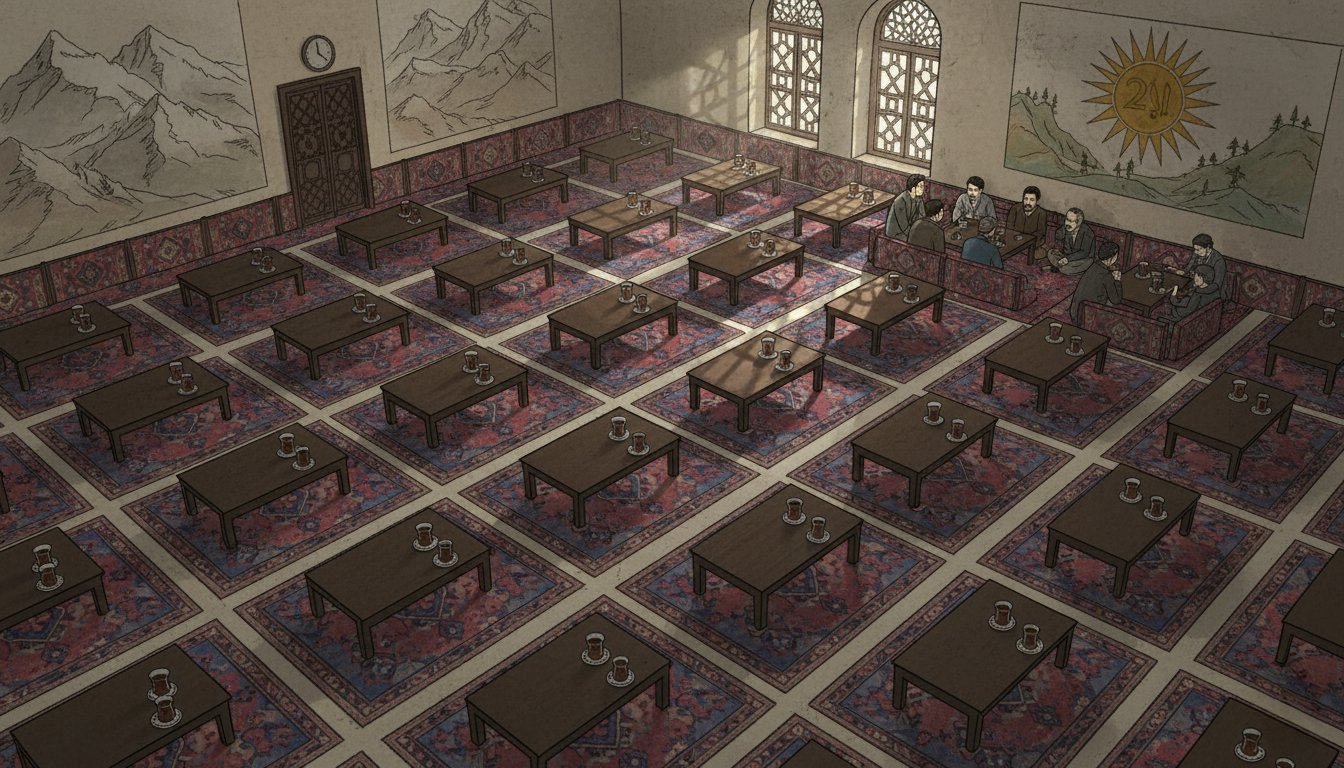Poll Reveals Widespread Political Disengagement Across Kurdistan Region

A recent survey by Sbey Research, a Sulaimani-based research organization, has uncovered striking patterns of political detachment among residents of the Kurdistan Region. The findings are particularly significant given the scarcity of independent polling in the region, where most research is typically conducted by institutions affiliated with the ruling KDP or PUK parties.
The comprehensive poll examined multiple dimensions of political engagement, revealing that a substantial majority of Kurdistan Region residents are not merely unaffiliated with political parties but actively disengaged from political life altogether. This pattern is especially noteworthy given that the poll’s sample was 75% male—a demographic traditionally assumed to be more politically active in the region’s conservative society.
Party Membership and Affiliation
When asked “Are you a member of a political party or organization?” the results painted a clear picture of political distance: 51% responded “no,” 34% identified as mere “supporters,” and only 14% claimed actual party membership.
Are you a member of a political party or organization?
The geographic breakdown reveals intriguing regional variations that challenge conventional assumptions. Erbil, often stereotyped as politically passive, actually demonstrated the highest levels of political engagement, with 18.2% claiming party membership and an additional 43.4% identifying as supporters—meaning only 38.4% reported no political affiliation. This contrasts sharply with Sulaimani and Duhok, where party membership rates were nearly identical at 12.2% and 12.7% respectively, with supporter rates of 30.4% and 28.9%. In these provinces, political non-affiliation reached 57.4% in Sulaimani and 58.4% in Duhok.
Civic Participation and Protest Activity
Perhaps most telling is the near-absence of participation in public demonstrations. When asked about involvement in protests or demonstrations over the past three years, an overwhelming 94% reported no participation, with only 6% acknowledging any form of civic activism.
Have you participated in any protest or civic demonstrations in the last 3 years?
This figure is particularly striking given the Kurdistan Region’s ongoing economic challenges, including chronic salary delays, and significant political upheavals during this period. Even in Sulaimani, which has witnessed the most frequent protests in recent years, actual participation appears to have been limited to a small fraction of the population.
Digital Political Expression
The pattern of political withdrawal extends to social media platforms, which are widely used across the region. A remarkable 76% of respondents reported “never” posting political content online, while only 5% said they post political opinions “always” or “frequently.” This suggests that even in digital spaces where expression carries lower social costs, most residents choose to avoid political discourse.
Family-Level Political Discussion
Interestingly, political disengagement persists even within the traditionally private sphere of family discussions. When asked about political conversations within their households, 46% reported “never” discussing politics—a figure that closely mirrors the 51% claiming no party affiliation. Only 24% engage in frequent political discussions with family members.
Do you ever discuss political topics within your family discussions?
These findings collectively suggest a profound disconnect between the Kurdistan Region’s politically charged environment and its citizens’ actual engagement with political processes. Despite the region’s strategic location within an unstable Iraq, ongoing territorial disputes, economic dependency on Baghdad, and frequent political crises, the majority of residents appear to be either deliberately withdrawing from political life or remaining genuinely apolitical.
This widespread political detachment raises important questions about democratic participation, social cohesion, and the legitimacy of political institutions in the Kurdistan Region. The results may reflect public disillusionment with existing political structures, fear of political repercussions, or simply a pragmatic focus on day-to-day survival amid economic uncertainty.
While these findings provide valuable insights into political attitudes in the Kurdistan Region, they should be interpreted with appropriate caution. The results would benefit from verification through additional independent polling, particularly research that examines the underlying motivations for political disengagement and explores whether this represents active choice or structural constraints on political participation.
The survey nonetheless offers a rare glimpse into genuine public sentiment in a region where independent polling remains uncommon, suggesting that the political class may be operating with limited understanding of actual citizen engagement and preferences.









